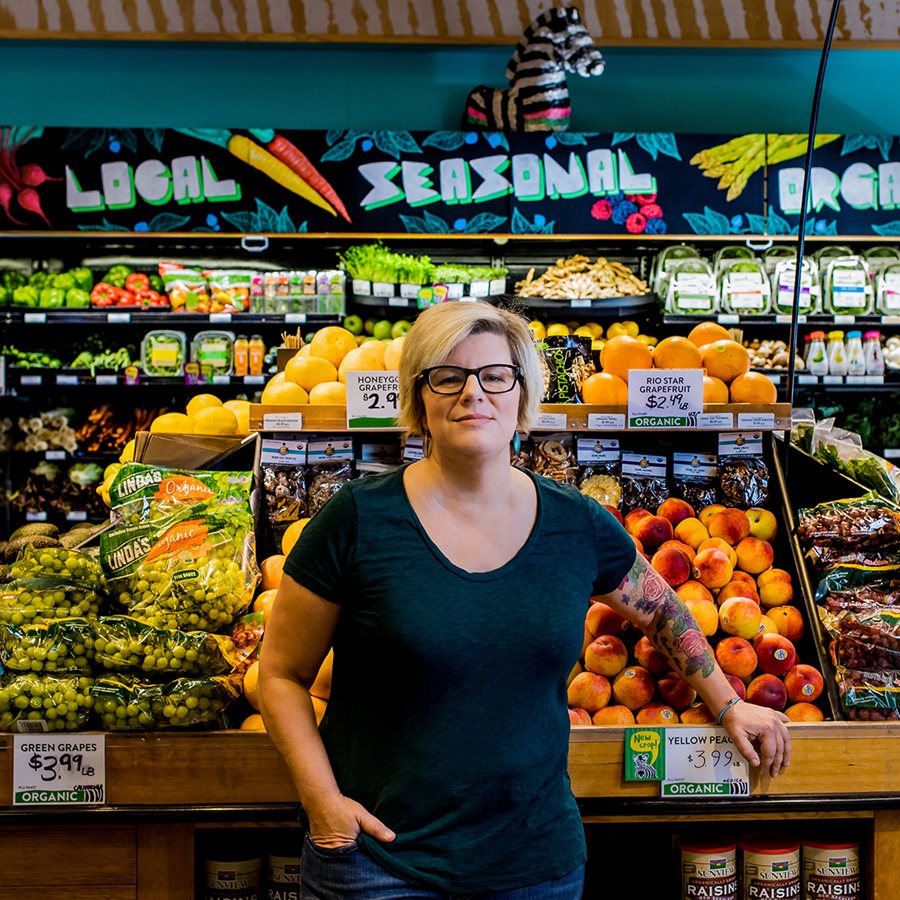Green Zebra Grocery, the three-unit retailer in Portland, Oregon, offering healthy, grab-and-go prepared foods and CPG products in a convenience-store format, said it will shut its doors at the end of March.
“Since being founded in 2013, Green Zebra has sought to redefine what it means to be a convenience store in America,” the company said in a statement. “Instead of selling cigarettes, lottery tickets and jumbo-sized sugary drinks like most convenience stores, Green Zebra offered customers made-from-scratch grab-and-go meals, a full service coffee bar, kombucha Zlurpees, locally sourced meat, produce and groceries along with the best local beer selection in Oregon.”
The company, named after a striped tomato variety, had previously planned to open dozens of locations along the West Coast, but a fundraising effort fell through in 2020, and it was forced to shutter two locations during the pandemic.
“We have been holding on by a thread since the pandemic started and have been in austerity mode since then,” said Lisa Sedlar (pictured above), Green Zebra’s founder and CEO.
The company has weathered nine consecutive quarters of cost increases, she said, citing everything from packaging to insurance.
“Combine that with supply chain and staffing shortages and razor thin grocery margins, we just couldn’t overcome all the obstacles,” Sedlar said. “We definitely gave it our all and fought the good fight.”
Sedlar, the former CEO of New Seasons Market and veteran of Whole Foods Market before that, opened Green Zebra in 2013 with the hopes of redefining the nature of convenience stores by focusing on improving the health of the neighborhoods where it operated, she said at the time.
In addition to offering natural, organic, better-for-you, and locally sourced foods, Green Zebra focused on providing strong wage and benefit programs, with affordable health insurance for all staff and their dependents, the company said.
By 2018, with three stores open and a fourth on the way, Sedlar said she hoped to have 20 locations by 2020 and as many as 100 stores by 2023 in markets up and down the West Coast, according to reports. Green Zebra had completed several rounds of start-up financing and was reportedly seeking another $10 million to fund its expansion into Seattle, but its growth plans never materialized.
The company could not be reach for further comment.
In a 2018 interview with Forbes magazine, Sedlar said the three locations at that time were generating $4 million per year in sales with 40 percent margins. The average customer was spending about $10 per visit and buying two to three items. The organic salad bar was the most popular item at the store, she said.
Green Zebra in 2021 was able to reopen its downtown Portland location at Portland State University after nearly 18 months, but the company has apparently been unable to bounce back from the impacts of the pandemic.
The company was also committed to partnering with local nonprofit organizations, and ended up supporting more than 100 during its 10-year run. These included Harper’s Playground, the Black Food Sovereignty Coalition, Meals on Wheels, and the PSU Food Pantry.
“It was a real honor to have been a partner with Green Zebra Grocery since their grand opening back in 2013 and for all the years since,” said Cody Goldberg, founder of Harper’s Playground, in a statement. “The Green Zebra team were like family to us and their presence in the neighborhood made the community stronger and more connected. We are thankful for their leadership and good deeds.”
Related: Green Zebra Reopens Store After Pandemic Shutdown; Green Zebra Partners With Local Restaurants.

